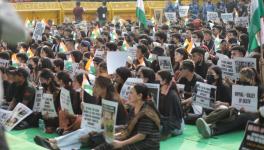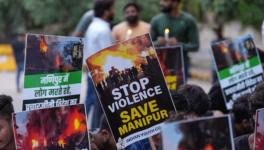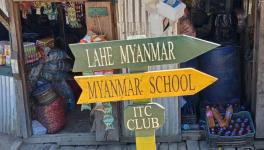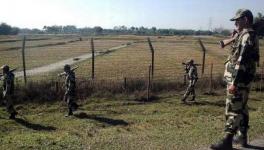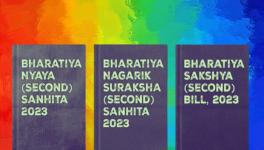Civilian Killings: 2018 Was the Deadliest Year in Kashmir, Says Report
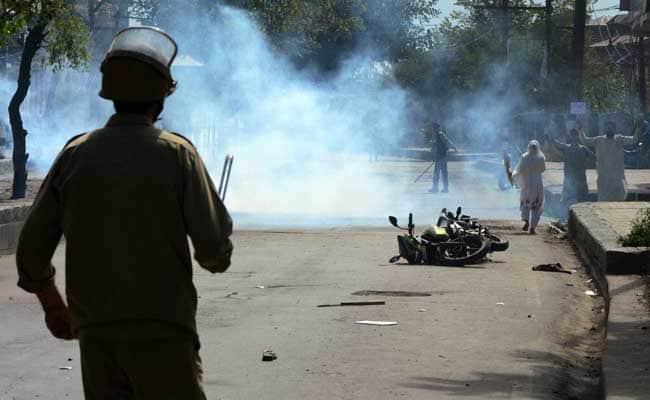
Representational Image. | Image Courtesy: NDTV
NEW DELHI: Was 2018 the deadliest year in Kashmir in recent times when it comes to civilian killings? It seems so, going by the annual human rights review report released by the Jammu and Kashmir Coalition of Civil Society (JKCCS). The report has revealed startling figures of civilian killings and human rights violations in Kashmir – making 2018 the deadliest year in the last decade. The figures contradict those presented by the Director General of Police, Dilbagh Singh.
As per the figures released by JKCCS, a total of 160 civilians were killed in incidents of violence in 2018 in the Valley. Among those killed were18 women and 31 children – the highest in the last decade – including an eight-month-old baby, Nitin Kumar, who was killed in cross-border firing in Pallanwala. According to the report, a total of 586 people were killed in 2018 in Kashmir. Among 586 people killed in Jammu and Kashmir, 160 are civilians, 267 are militants and 159 are members of Indian armed forces and Jammu and Kashmir police, the report added.
Meanwhile, in contrast, government figures show a decline in killings. In reply to a written question in Rajya Sabha on Wednesday, Minister of State for Home Affairs, Hansraj Ahir, said, “Altogether 140 terrorists were killed by security forces in Jammu and Kashmir between June and December 2018 during which 426 stone pelting incidents were also reported in the state.” However, these figures have allegedly created more distrust among people in Kashmir who think that “government is hiding the human rights violations in the valley”, say human rights activists.
According to the JKCCS report, most civilian deaths were reported from South Kashmir, the region which saw sustained violence in 2018. Almost 85 civilian killings were recorded from four districts of South Kashmir – Kulgam, Anantnag, Pulwama and Shopian. North Kashmir recorded 24 civilian killings, while Central Kashmir witnessed killings of 13 civilians. Near 180 instances of internet blockade were recorded in 2018. The report also documented surging cordon and search operations in the valley.
In 2018, at least 275 Cordon and Search Operations (CASOs) were conducted across Jammu and Kashmir, which resulted in the killing of 267 militants, the report said. According to data compiled by Association of Parents of Disappeared Persons and JKCCS, at least 143 encounters took place between Indian armed forces and militants following CASOs. In 2018, at least 120 cases of damage to civilian houses were reported in Jammu and Kashmir in which 31 houses were completely burnt while 94 were partially damaged, the report said.
The report also talked about the decade-high suicides among security forces, as “20 armed force personnel claimed their lives” – the highest in the past 10 years. 2018 also saw an uptick in the usage of force and pellets at protestors. “In 2018, 191 incidents of excessive use of force were recorded. Firing on protestors, use of pellet shotguns, beatings and physical assaults by Indian armed forces have been routinely reported. According to a newspaper report, from May 1 to 9, around 115 people were admitted in Shri Maharaja Hari Singh Hospital (SMHS) for pellet and bullet injuries. Out of these, 74 had received pellets, with 60 among them having injuries in their eyes. According to a surgeon treating the injured at the hospital, government forces had been firing bullets on chest, neck, head and abdomen, which showed their intention to kill,” the JKCCS report said.
The year also saw the youngest pellet victim, 19-month old, Hiba. A pellet had hit her right eye and was later removed by doctors but yet the chances that she might lose her eyesight in the affected eye are high.
The report also underlined the less-acknowledged instance of vandalism. In 2018, at least 120 cases of damage to civilian houses were reported in Jammu and Kashmir in which 31 houses were completely burnt while 94 were partially damaged. “ The burning and destruction of civilian properties is not just a form of collective punishment against the local population but an act which renders scores of families homeless,” the report said.
The report also documented the curb on the freedom of press by including the case of jailed journalist Aasif Sultan and Delhi-based journalist Zulkarnain Banday. “Recently a Kashmiri journalist based in New Delhi, Zulkarnain Banday was informally summoned by Jammu and Kashmir Police to visit Srinagar for meeting them. He was detained for a few days at Joint Interrogation Centre at Humhama Srinagar during which he was repeatedly questioned and harassed for his online views”, the report noted.
Get the latest reports & analysis with people's perspective on Protests, movements & deep analytical videos, discussions of the current affairs in your Telegram app. Subscribe to NewsClick's Telegram channel & get Real-Time updates on stories, as they get published on our website.











